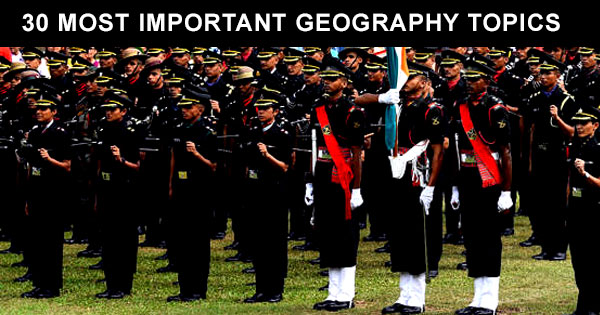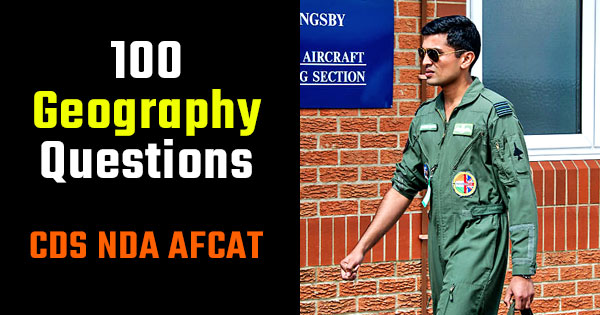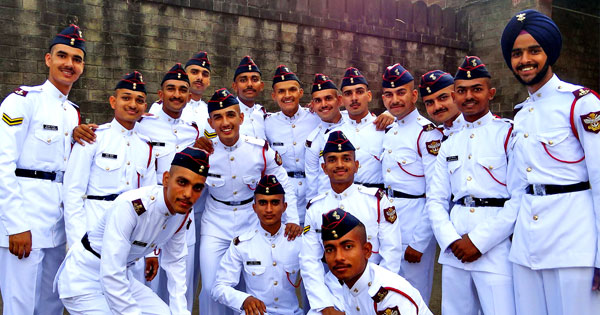This is one of the most interesting topics of all of the general ability and general knowledge papers of any defence examination. However, changing patterns of the question papers of NDA, CDS, AFCAT, INET etc. have made our job more intense on how to tackle the most of geography. You get 17 questions of Geography in NDA/NA examination approximately. In CDS, it is 20; in TA and other examinations, Geography carries a minimum of 20% to a maximum of 40% weightage. However NCERT books might be helpful, in the end, you need some more extra knowledge and analysis of the current affairs too. So here I present the list of topics where most aspirants ignore looking into before their examination. Keep an idea of these. My suggestion is that if you are able to maintain proper notes, then it will be very helpful.
- Location, latitude, longitude and time zone of India.
- Important straits.
- Names of the boundary lines between the two countries.
- The physical features’ study – the Himalayas, the great Gangetic plains, the peninsular plateau, deserts and islands.
- Names and information of all coastal plains.
- All rivers and their tributaries.
- All major rivers of the world.
- Locations of highest peaks of all sets of mountains in India.
- Hydropower, thermal and nuclear power projects in India.
- All ocean currents – both of India and of world.
- Location of minerals, major industries and industrious and historical cities.
- Types of agricultural practices – a green revolution.
- Factors causing pollution – global warming and related.
- List of all major national parks in India.
- Biodiversity hotspots of our country.
- UNESCO World Heritage sites.
- Major environmental and industrial summits and events.
- Origins and the interior of the earth, different levels of the atmosphere.
- Formation of rocks.
- Various famous volcanoes, various landforms.
- Various geomorphic processes – earthquakes, cyclones.
- Pressure belts and wind systems.
- Ocean currents – waves and tides.
- About soil, afforestation, various grasslands etc.
- Types of natural vegetation.
- Renewable and non-renewable resources.
- Major biomes of the world.
- About ecological balance.
- Various tribes, migration settlements.
- Towns, megacities and projects.
HOW TO REMEMBER THE ABOVE:
| For points 2, 3, 8, 16, 17, 18, 21, 24, 27 mentioned above | Make tabular information. Make notes in tabular forms for better understanding. A small trick that I personally follow is that I keep this tabular information written in an A4 size sheet and pasted in front of the wall at my table. Every day when I reach the table, I will have a glance at all of them. You will be surprised but through this way, not consciously but subconsciously your brain remembers the information. This is absolutely what we need to master the “guessing game” of the examination when we want to. You can also try a similar technique. Not all brains are the same, but yes, all are capable. |
| For points 5, 9, 11, 14, 15, 16, 18, 22 and 25 mentioned above | Literally use a bunch (I mean “a bunch”) of outline maps. Locate and draw each and everything on an outline map. You get these maps in any stationery for 1 to 2 rupees. Get these and do the work. My personal time passing is by means of this. If you want to take a break after studying for a long time, take a map and locate things on it – let that be important industrious cities or mountains or rivers or national parks or whatever. This will relax your mood and will improve the cognitive senses of your brain. Use colours for fun if you need while locating. (I am absolutely not advising you to waste your time, please understand.) If you do not do this, it’s very hard to remember and easy to confuse unless you have achieved mastery in these. Do not download maps and see it. Do some hard work. You yourself mark on it. When you write, you remember more. |
| For points 4, 5, 12, 13, 16, 17, 19, 20, 21, 23, 24, 25, 26, 28, 29, 30 mentioned above. | Make a set of your own personalized notes on these topics. Read and do research about these online. Regarding NDA and CDS, chances are that you get the latest current affairs questions from these topics. |
In this way, you will cover almost everything of the geography. But remember, I advise you to have a practice of at least two to five mock tests so that you will know your competency. In SSBCrackExams courses, we gave numerous mock tests. You can have a look at them. Also, do not forget, geography is just a part of the whole paper, not the whole of it.
Good luck with your exams. Keep up the fire lit.
Download: SSB Interview ebooks pack







